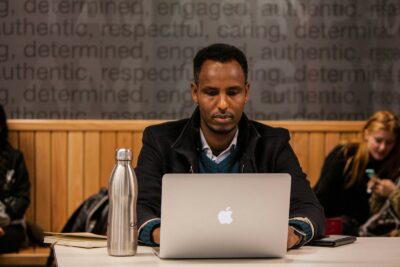Building a Culture of Agility and Innovation
Effective leadership in this dynamic environment requires a new approach. Leaders who can navigate disruption, foster a culture of innovation, and build agile organizations will be best placed to ensure their organizations thrive in the years to come. The economies of Saudi Arabia and the UAE are undergoing a period of significant transformation, driven by ambitious national visions and a growing appetite for innovation. This rapid change presents both challenges and opportunities for businesses in the region.
Fostering Open Communication and Collaboration
A crucial aspect of effective leadership in the age of disruption is fostering a culture of open communication and collaboration. Leaders must create an environment where employees feel empowered to share ideas, challenge the status quo, and experiment with new approaches. This can be achieved by encouraging open dialogue through regular town hall meetings, employee feedback surveys, and fostering a culture of psychological safety where employees feel comfortable taking risks without fear of reprisal. Breaking down silos between departments is also essential. This can be done by creating cross-functional teams, encouraging interdepartmental collaboration projects, and fostering a sense of shared purpose across the organization. By fostering a culture of collaboration, leaders can tap into the collective intelligence of their teams and unlock new possibilities for innovation. Additionally, investing in change management strategies can equip organizations with the tools and processes necessary to navigate change effectively, minimizing disruption and ensuring a smooth transition for employees.
Building an Agile Workforce for the Future
The future of work demands a workforce that is adaptable and constantly learning. Leaders must prioritize building an agile workforce with the skills and knowledge necessary to thrive in an ever-evolving business landscape. This can be achieved by providing employees with access to training programs, workshops, and online learning resources on relevant topics, such as emerging technologies, leadership skills, and project management methodologies. Encouraging a growth mindset is also crucial. A growth mindset is the belief that skills and abilities can be developed through effort and learning. Leaders can foster a growth mindset by praising effort and perseverance, and by providing opportunities for employees to learn from their mistakes. Additionally, creating a culture of continuous learning is essential. This can be done by organizing knowledge-sharing sessions, encouraging peer-to-peer learning, and creating a platform where employees can share their expertise with others. By building an agile workforce, leaders can ensure their organizations are well-positioned to adapt to change and seize new opportunities in the years to come.
Harnessing the Power of Technology for Growth
Embracing Innovation: Artificial Intelligence, Blockchain, and Beyond
Disruptive technologies like Artificial Intelligence (AI), Blockchain, and the Metaverse have the potential to revolutionize entire industries. Leaders in the Middle East must embrace these technologies and explore their potential applications to ensure their organizations remain competitive. This requires a forward-thinking approach that identifies areas where these technologies can be leveraged to streamline operations, improve efficiency, and enhance customer experiences. For example, AI can be used to automate repetitive tasks, analyze data to identify customer trends, and personalize marketing campaigns. Blockchain can be used to ensure secure and transparent transactions, track the movement of goods through supply chains, and verify the authenticity of products. By embracing innovation and strategically implementing these technologies, leaders can unlock new growth opportunities and propel their organizations towards a successful future.
Building a Human-Centric Future: The Importance of Emotional Intelligence
While technology plays a critical role in the future of work, it is important to remember that the human element remains essential. Leaders must adopt a human-centric approach that prioritizes the well-being and development of their employees. This includes fostering a culture of emotional intelligence, where leaders can understand and manage their own emotions, as well as the emotions of others. Emotionally intelligent leaders can create a positive and supportive work environment, build trust with their teams, and motivate employees to achieve their full potential. Additionally, leaders must focus on developing the skills that complement and cannot be replaced by technology, such as creativity, critical thinking, and problem-solving. By adopting a human-centric approach and fostering the development of these essential skills, leaders can ensure their organizations not only survive but thrive in the age of disruption.
#ChangeManagement #ExecutiveCoaching #Communication #BusinessSuccess #Leadership #ProjectManagement #SaudiArabia #UAE #Innovation #Technology #AI #Blockchain #Metaverse #GenerativeAI























